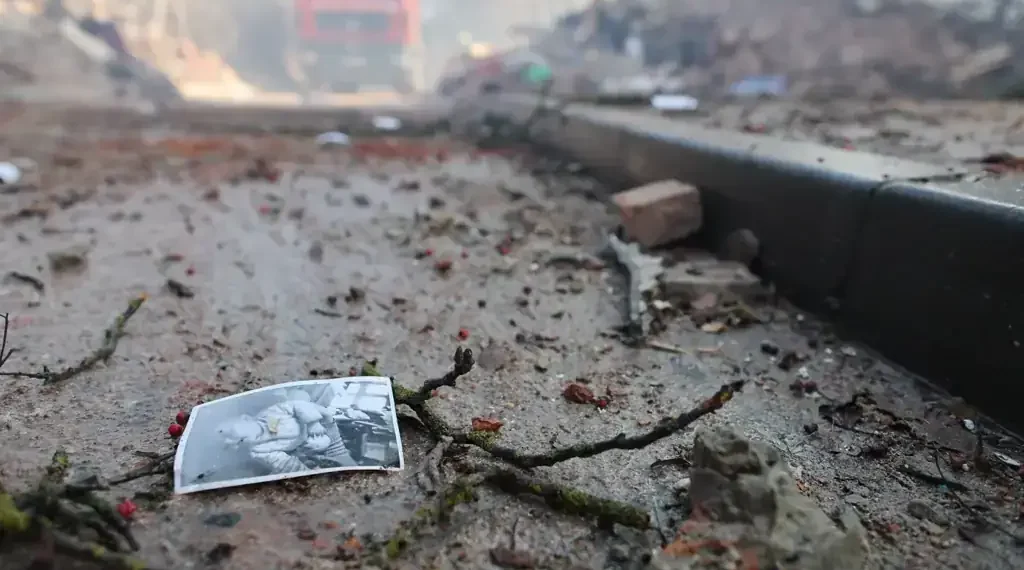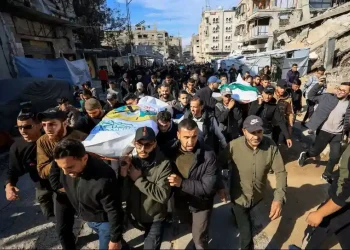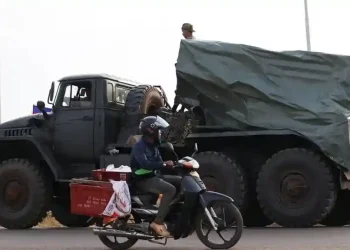Russian Drone and Missile Barrage Kills 25 in Ternopil as Zelenskyy Seeks Diplomatic Support in Turkey
At least 25 people, including three children, were killed in a nighttime Russian missile and drone strike on Ternopil, western Ukraine. The attack coincided with President Volodymyr Zelenskyy’s visit to Turkey to strengthen international diplomatic pressure on Russia. Ukrainian authorities continue search and rescue operations amid ongoing cross-border hostilities.
Deadly Assault Hits Ternopil
A large-scale Russian attack on Ukraine’s western city of Ternopil killed at least 25 people, Interior Minister Ihor Klymenko said Wednesday. Three of the victims were children aged 5, 7, and 16. At least 73 others, including 15 children, were injured as the assault targeted two nine-story apartment buildings approximately 200 kilometers (120 miles) from the Polish border.
Klymenko reported that 19 victims were burned alive. Two dozen people remain unaccounted for, and emergency services anticipate at least two more days to complete search operations in the rubble.
Ukraine’s Air Force said Russia launched 476 strike and decoy drones along with 48 missiles overnight. The bombardment included 47 cruise missiles, six of which penetrated Ukraine’s air defenses. Western-supplied F-16 and Mirage-2000 jets intercepted at least 10 cruise missiles, according to military officials.
President Zelenskyy condemned the strikes in a Telegram post, stating, “Every brazen attack against ordinary life indicates that the pressure on Russia to stop the war is insufficient.”
Diplomatic Engagement in Ankara
On Wednesday, Zelenskyy met with Turkish President Recep Tayyip Erdogan in Ankara, emphasizing the importance of diplomatic isolation of Russian President Vladimir Putin. Both leaders made brief statements expressing commitment to finding a peaceful resolution to the conflict.
Turkey, a key Black Sea mediator, maintains relations with both Kyiv and Moscow. Zelenskyy highlighted the potential of Turkish diplomacy, noting its influence in Moscow, as Kyiv seeks additional international pressure on Russia.
Prior to the talks, Zelenskyy referenced signals from the United States concerning the conflict. The U.S. plans to implement stricter sanctions on Russia’s oil sector, aimed at incentivizing Moscow to negotiate.
A senior Turkish official initially said U.S. envoy Steve Witkoff would join Zelenskyy in Turkey but later retracted the statement. Meanwhile, U.S. Army Secretary Dan Driscoll visited Ukraine with senior military officials, including Army Chief of Staff Gen. Randy George, to conduct negotiations.
Escalating Regional Threats
Ternopil is located in western Ukraine, a region that has remained relatively shielded from heavy fighting. Many residents from eastern and southern conflict zones have relocated there seeking safety.
Additional Russian strikes hit three other Ukrainian regions, injuring nearly 50 people. In Kharkiv, northeastern Ukraine’s second-largest city, drone attacks injured 46, including two children, and damaged residential buildings, schools, and emergency services, according to regional governor Oleh Syniehubov.
Russia’s Defense Ministry stated its strikes targeted Ukrainian energy and military infrastructure, including long-range drone depots, as retaliation for Ukrainian attacks on Russian territory.
NATO Scrambles Jets Amid Drone Incursions
During the attacks, Romania deployed two Eurofighter Typhoon and two F-16 jets after a Russian drone entered NATO airspace, the Romanian Ministry of National Defense reported. Poland also mobilized military aircraft, temporarily closing Rzeszów and Lublin airports to prioritize defense operations.
In addition, Russian authorities reported that Ukraine fired four U.S.-supplied ATACMS missiles at Voronezh, Russia. All were intercepted, though debris damaged a private home, an orphanage, and a gerontology center. There were no casualties, the Defense Ministry said.
Ukraine’s General Staff confirmed the missile strikes on Russia but did not provide detailed outcomes.
Humanitarian and Strategic Implications
The Ternopil assault highlights the continued reach of Russian missile and drone capabilities into western Ukraine, raising concerns over civilian safety even in relatively peaceful regions. International observers note that the escalation coincides with intensified diplomatic efforts by Kyiv to strengthen Western support and apply economic and political pressure on Moscow.
As search and rescue operations continue, officials underscore the need for humanitarian assistance for victims’ families. The ongoing cross-border military activity underscores the fragile security environment in Eastern Europe and the broader geopolitical implications for NATO and regional partners.
This article was rewritten by JournosNews.com based on verified reporting from trusted sources. The content has been independently reviewed, fact-checked, and edited for accuracy, neutrality, tone, and global readability in accordance with Google News and AdSense standards.
All opinions, quotes, or statements from contributors, experts, or sourced organizations do not necessarily reflect the views of JournosNews.com. JournosNews.com maintains full editorial independence from any external funders, sponsors, or organizations.
Stay informed with JournosNews.com — your trusted source for verified global reporting and in-depth analysis. Follow us on Google News, BlueSky, and X for real-time updates.














